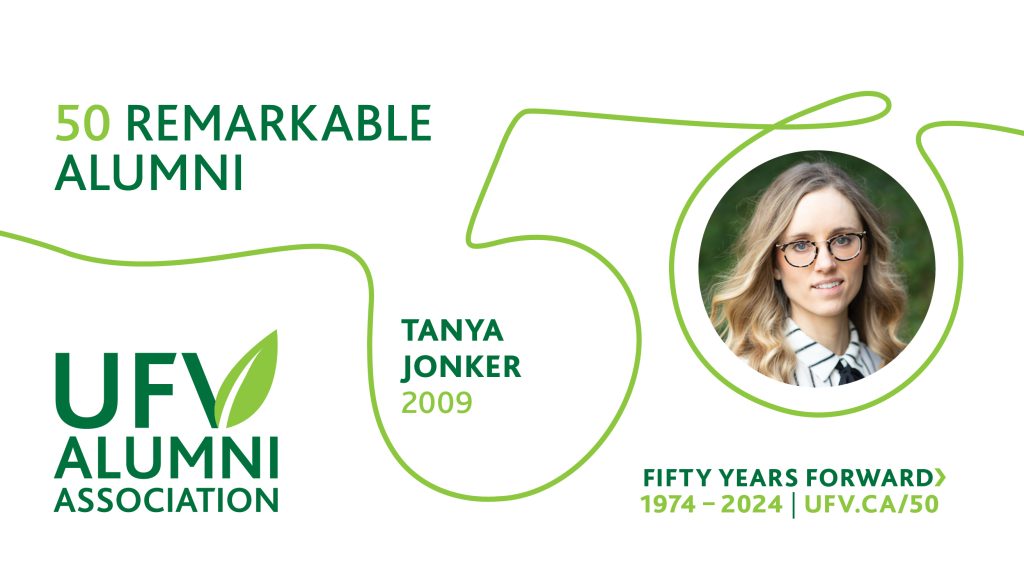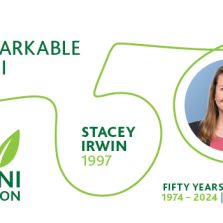50 Remarkable Alumni: Tanya Jonker says understanding how we think will help AI to help us

For many people, earning a PhD means they have plans for a career in academia, pursuing their research interests and teaching the next generation of scholars.
Dr. Tanya Jonker had other ideas. While she loved her university studies, she was intrigued by opportunities and revolutionary developments in the private sector.
Tanya, who earned a BA in psychology at UFV in 2009 and was the 2014 Young Distinguished Alumni Award recipient, headed south after completing her doctorate at the University of Waterloo, where she studied cognitive neuroscience.
She then did post-doctoral research at the University of California Davis, where she was the project lead of several streams of inquiry into human cognition and neuroscience, with a focus on learning and memory.
These days, you can find Tanya applying her knowledge and skills as a research science manager at Meta Reality Labs, where she’s immersed in imagining what the future will look like and working towards realizing it.
“We are focused on augmented reality and its applications, such as ‘smart’ glasses,” she notes. “For instance, what if when you are cooking, the artificial intelligence integrated into your eyeglasses could understand what you are trying to cook and offer tips and suggestions, information that you could see through your glasses or on your phone?”
“Our work draws on research expertise from cognitive science, human-computer interaction, and machine learning.”
At Meta, she leads a research team exploring adaptive interaction for augmented reality and VR.
“Our work draws on research expertise from cognitive science, human-computer interaction, and machine learning,” she notes. “We develop computational interactions based on a user’s cognitive state and interaction intent, which drive adaptive input and user interfaces for futuristic AR devices. We work with the latest AI technologies, with a current focus on machine perception, generative AI, and large language models.”
The end goal?
“Our North Star is to create systems that naturally extend your ability to think, ideate, and interact without breaking your immersion in the real world.”
“I am a researcher through and through and that skill set has served me well, and Andrea had a lot to do with that.”
Tanya credits the mentorship of UFV psychology professor Andrea Hughes with inspiring her to pursue a career in cognitive neuroscience.
“Andrea played a huge role in shaping my thinking and went above and beyond to give me opportunities and secure funding for me to attend conferences, and to help me develop core research skills,” Tanya recalls. “I am a researcher through and through and that skill set has served me well, and Andrea had a lot to do with that.”
When Tanya was a student, she was part of the first cohort to complete an honours thesis in the psychology degree program, part of an intensified focus on research and the undergraduate level at UFV.
Her advice for current students?
“Find a culture and people who are really going to push how you think, who will challenge your work and make it better! That’s true at the undergraduate level and in grad studies and the working world. Mentors, sponsors, people who will push you and be your champions are very important.”
And focus on developing scientific research skills.
“The scientific skill set you can develop while studying psychology is very valuable in the realm of AI research. Large-language models will transform AI and understanding how people think will be a critical skill to bring to the table.”
Tanya valued her time at UFV immensely and says it’s an honour to have been recognized as one of 50 Remarkable Alumni to mark UFV’s 50th anniversary.

